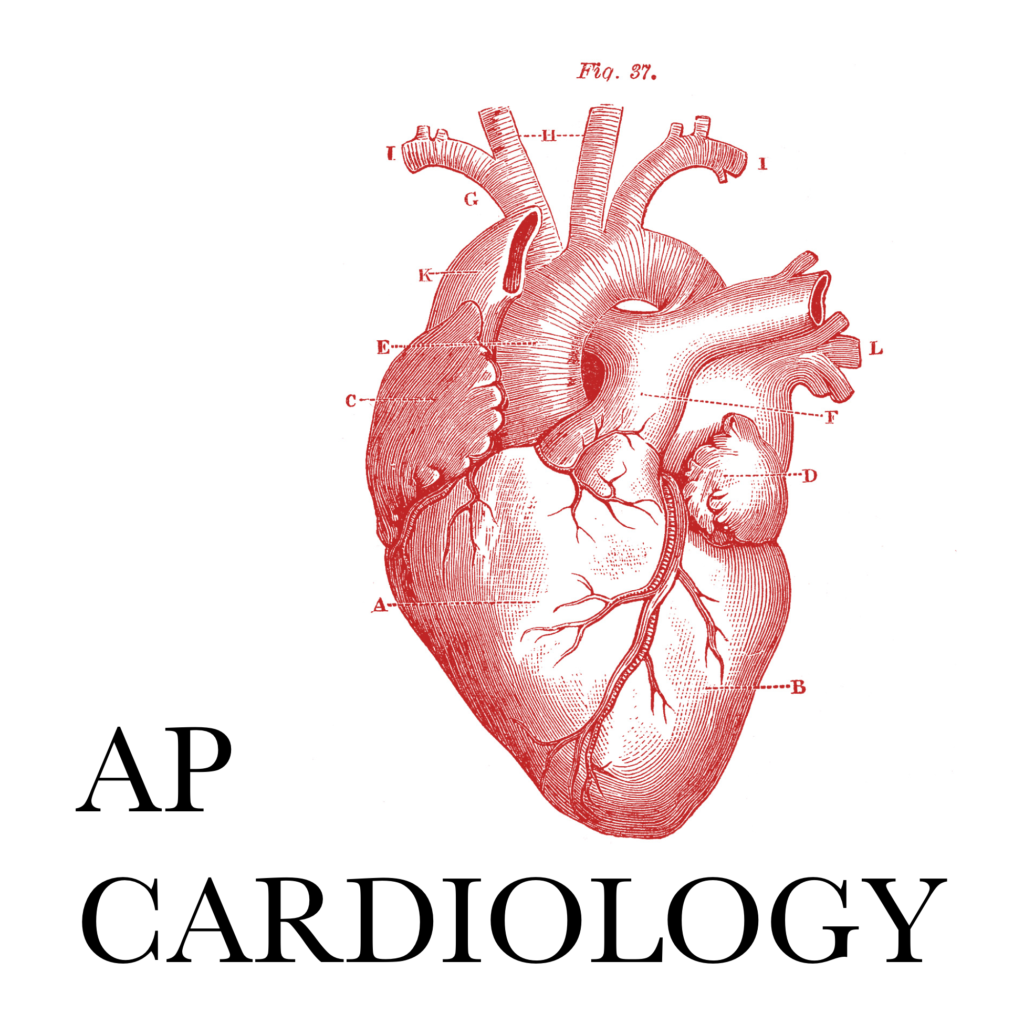How to know it’s time to consult a Cardiologist near me
How to know it’s time to consult a Cardiologist near me
Blog Article
Understanding the Value of Cardiology in Modern Health Care Services
Cardiology plays a crucial role in modern medical care, particularly as heart problem remains to be the leading reason of death worldwide. Breakthroughs in diagnostics and therapy have actually changed patient treatment, allowing earlier treatments and improved outcomes. The shift towards preventive cardiology empowers people to manage their health proactively. As modern technology continues to advance, the combination of ingenious solutions might additionally redefine cardiology's effect on public health and wellness, triggering a more detailed examination of arising patterns and their ramifications.
The Prevalence of Heart Condition and Its Effect On Public Health
Heart illness remains the leading cause of death globally, its influence prolongs much beyond individual people to affect public health and wellness systems and economic climates. The high occurrence of cardiovascular disease puts a considerable pressure on health care resources, necessitating boosted financing for rehabilitation, avoidance, and therapy programs. Public health and wellness initiatives should deal with risk factors such as obesity, smoking cigarettes, and sedentary way of livings, which add considerably to the rising incidence of heart conditions.Moreover, the financial burden linked with cardiovascular disease is immense, encompassing not only straight medical prices however additionally indirect expenditures connected to shed productivity and early death. Neighborhoods encounter difficulties in managing these prices, commonly leading to variations in health care gain access to and end results. As the populace ages and lifestyle-related dangers remain to intensify, the seriousness for efficient cardiology treatments ends up being vital. Addressing heart illness is not just an issue of private health and wellness but additionally an important public wellness concern.
Developments in Cardiac Diagnostics and Imaging Techniques
Recent advancements in heart diagnostics and imaging strategies have revolutionized the area of cardiology, improving the capability to monitor and spot heart problem. Strategies such as heart MRI, CT angiography, and echocardiography have actually come to be significantly advanced, giving detailed photos of heart structures and features. These methods allow for the early recognition of problems like coronary artery disease, heart failing, and valvular disorders.Moreover, innovations in non-invasive diagnostics, such as wearable technology and remote tracking gadgets, have equipped individuals and health care suppliers. These tools help with real-time monitoring of heart rhythms and other vital indicators, causing prompt treatments. Additionally, expert system is being integrated right into imaging analysis, boosting precision and efficiency in diagnosis.
Advancements in Therapy Options for Heart Issues
Current innovations in cardiology have led to considerable developments in therapy options for heart disease. These consist of innovative medical techniques that improve step-by-step outcomes and emerging drugs that supply brand-new opportunities for treatment. As the field develops, these innovations play a vital role in improving individual care and end results.
Advanced Surgical Techniques
Developments in medical strategies have actually changed the landscape of cardiology, providing new hope for patients with heart conditions. Minimally invasive procedures, such as catheter-based treatments, have actually substantially minimized healing times and hospital stays. Strategies like robotic-assisted surgical procedure enhance precision, allowing cosmetic surgeons to navigate complicated physiological structures with greater precision. Innovations in imaging technology promote real-time visualization throughout procedures, enhancing end results. Transcatheter aortic valve substitute (TAVR) exemplifies a breakthrough in dealing with aortic stenosis, allowing shutoff replacement without open-heart surgery. Additionally, hybrid approaches that integrate catheter-based and medical approaches give customized options for various cardiac concerns. These innovative surgical methods not only boost client safety but additionally increase treatment alternatives, underscoring the critical duty of development in modern-day cardiology methods.
Emerging Medications and Therapies
As the landscape of cardiology remains to evolve, emerging therapies and medicines play an essential function in improving treatment options for heart disease. Developments such as unique anticoagulants and advanced lipid-lowering representatives have changed the management of heart diseases, greatly decreasing person morbidity and mortality. Additionally, the development of gene treatments and regenerative medication uses encouraging methods for dealing with conditions formerly deemed permanent. Medical tests are consistently disclosing the effectiveness of these treatments, pressing the limits of conventional treatments. Additionally, the assimilation of electronic health and wellness technologies facilitates customized medicine, enabling for tailored therapy plans based upon genetic and lifestyle aspects. Jointly, these innovations underscore the dynamic nature of cardiology, improving individual outcomes and redefining requirements of treatment in contemporary medical care.
The Role of Preventive Cardiology in Individual Care
Precautionary cardiology plays a vital duty in individual treatment by focusing on the identification of danger aspects that add to heart problem. With lifestyle modification approaches and early detection methods, doctor can properly lower the occurrence of cardio occasions - Cardiologist near me. This proactive approach not only improves person outcomes however likewise advertises long-term health
Threat Factor Identification
While cardiovascular diseases remain a leading reason for morbidity and mortality worldwide, reliable risk element recognition functions as a keystone of preventative cardiology. Identifying risk variables such as high blood pressure, hyperlipidemia, diabetic issues, and household background is necessary for early treatment. Healthcare experts utilize various evaluating methods to assess these variables, permitting tailored safety nets. Furthermore, recognizing an individual's lifestyle choices, such as smoking cigarettes and physical inactivity, better educates danger analyses. This extensive evaluation makes it possible for medical professionals to establish individualized care strategies focused on mitigating dangers. By prioritizing threat factor identification, health care systems can boost person end results and minimize the general problem of heart diseases, ultimately adding to boosted public health and wellness methods and resource allotment.
Way Of Living Modification Methods
A multitude of research studies highlights the essential duty of lifestyle adjustment techniques in reducing cardiovascular condition danger. These methods include dietary modifications, raised exercise, smoking cessation, and weight monitoring. By adopting a heart-healthy diet regimen abundant in fruits, veggies, entire grains, and lean healthy proteins, individuals can decrease cholesterol degrees and blood stress. Normal physical task enhances the heart and enhances total cardio wellness. Furthermore, quitting cigarette smoking substantially minimizes the threat of cardiovascular disease and improves recovery rates for those with present problems. Weight administration additionally contributes to cardiovascular wellness by reducing various other threat aspects such as diabetes and high blood pressure. Executing these way of life changes not only promotes private wellness yet additionally offers as a keystone of preventative cardiology in patient care.
Early Discovery Strategies
Way of living modifications considerably add to minimizing heart disease dangers, yet they are most reliable when combined with very early discovery methods. Precautionary cardiology stresses the value of identifying prospective heart issues before they intensify into serious problems. Strategies such as high blood pressure surveillance, cholesterol screening, and progressed imaging modern technologies like echocardiograms play critical functions in evaluating cardio health. Biomarkers and genetic screening additionally improve the accuracy of early detection, permitting tailored preventative methods. Normal cardiac danger evaluations equip medical care providers to step in proactively, possibly preventing heart strikes and strokes (Cardiology care). By incorporating these early discovery techniques into regular treatment, patients can gain from timely lifestyle interventions and targeted treatments, eventually enhancing and enhancing results high quality this page of life
Integrating Modern Technology Into Cardiology Practices
As advancements in innovation remain to reshape different fields, the combination of ingenious tools and systems into cardiology practices has become necessary for boosting person treatment and end results. Telemedicine systems allow cardiologists to check individuals from another location, enhancing access to care while minimizing the problem on health care facilities. Wearable devices, such as smartwatches, allow continuous heart rate monitoring, alerting both medical professionals and individuals to potential issues in real-time. Additionally, fabricated knowledge (AI) is being utilized to analyze substantial quantities of heart information, assisting in very early diagnosis and customized treatment plans. Advanced imaging techniques, consisting of 3D echocardiography, improve visualization of heart frameworks, bring about a lot more precise treatments. Digital health and wellness records (EHRs) streamline person info management, making certain that cardiologists have immediate accessibility to essential information. Together, these technological advancements are changing cardiology, advertising proactive monitoring and improved health and wellness outcomes for individuals with cardio conditions.
The Importance of Client Education and Involvement
Individual education and learning and involvement play a pivotal role in the management of cardiovascular health. By equipping individuals with expertise concerning their conditions, treatment options, and way of life adjustments, healthcare service providers equip individuals to take an active duty in their treatment. This positive method can result in boosted adherence to recommended medicines, dietary changes, and workout routines, eventually minimizing the risk of complications.Engagement likewise promotes a strong patient-provider connection, motivating open interaction and count on. When patients feel informed and entailed, they are extra likely to voice concerns and ask inquiries, which can result in better scientific end results. Furthermore, educational sources, such as workshops or digital systems, can enhance understanding and advertise self-management techniques. Generally, focusing on person education and engagement is necessary for improving cardio health, enhancing lifestyle, and lowering healthcare prices related to cardio conditions.
Future Trends in Cardiology and Their Potential Influence

Frequently Asked Questions
What Way Of Living Adjustments Can Minimize Cardiovascular Disease Risk?
The existing inquiry addresses way of life changes that can greatly lower heart problem danger. Cardiology Jupiter. Adopting a well balanced diet plan, taking part in regular exercise, preserving a healthy weight, taking care of anxiety, and avoiding cigarette can notably boost cardiovascular health and wellness
How Can I Identify Early Indicators of Heart Problems?
Identifying early indications of heart problems includes tracking symptoms such as breast discomfort, shortness of breath, exhaustion, and irregular heartbeat. Prompt understanding of these indications can trigger necessary clinical evaluation and treatment for better end results.
What Are the Differences In Between Cardiologists and Cardiac Surgeons?
The distinctions between cardiologists and heart doctors hinge on their duties; cardiologists mainly detect and manage heart conditions through non-invasive methods, while heart surgeons execute surgeries to correct architectural heart issues. Each plays an essential, distinct role.

How Typically Should I Get My Heart Health And Wellness Checked?
The regularity of heart medical examination varies based on private threat factors. Typically, adults ought to go through evaluations every one to two years, while those with present problems may call for more frequent assessments as encouraged by medical care specialists.
What Role Does Genes Play in Heart Disease Risk?
Genes significantly influences heart illness danger, with domestic patterns showing inherited conditions. Particular genes can predispose individuals to hypertension, cholesterol problems, and various other cardio troubles, highlighting the relevance of hereditary testing in evaluating heart health. Heart condition continues to be the leading reason of death around the world, its influence prolongs far beyond private clients to affect public health systems and economies. Public wellness campaigns need to attend to Going Here danger elements such as obesity, smoking, and less active way of lives, which contribute greatly to the climbing incidence of heart conditions.Moreover, the economic worry associated with heart disease is tremendous, including not just straight medical prices but likewise indirect expenses connected to lost performance and premature death. Precautionary cardiology plays a vital duty in client care by concentrating on the recognition of danger variables that add to heart illness. Synthetic intelligence (AI) and equipment learning are improving diagnostics and patient tracking, allowing very early discovery of heart conditions. The differences between cardiologists and heart specialists lie in their functions; cardiologists mainly diagnose and handle heart problems via non-invasive methods, while cardiac surgeons perform surgical treatments to deal with structural heart problems.
Report this page